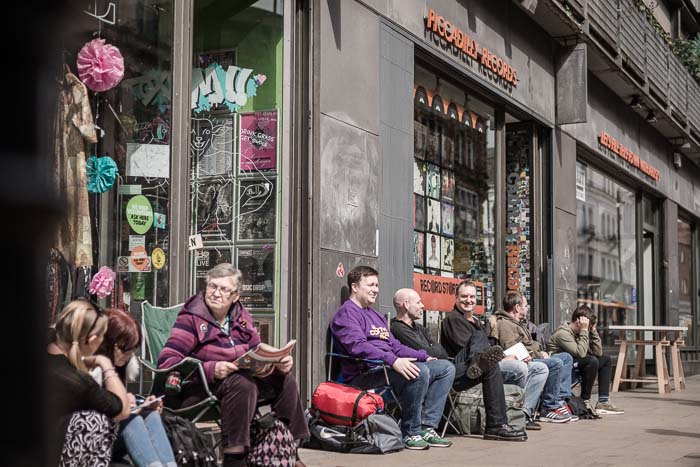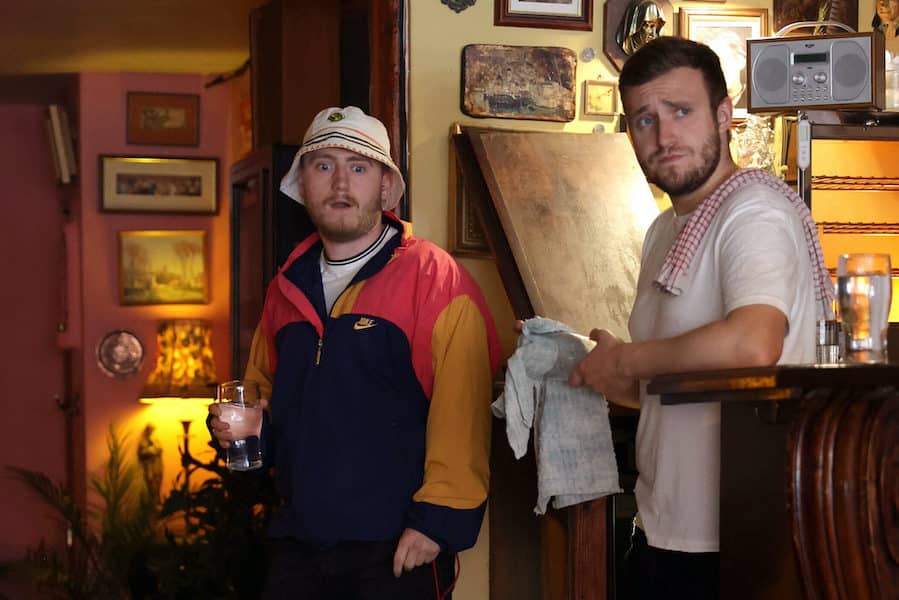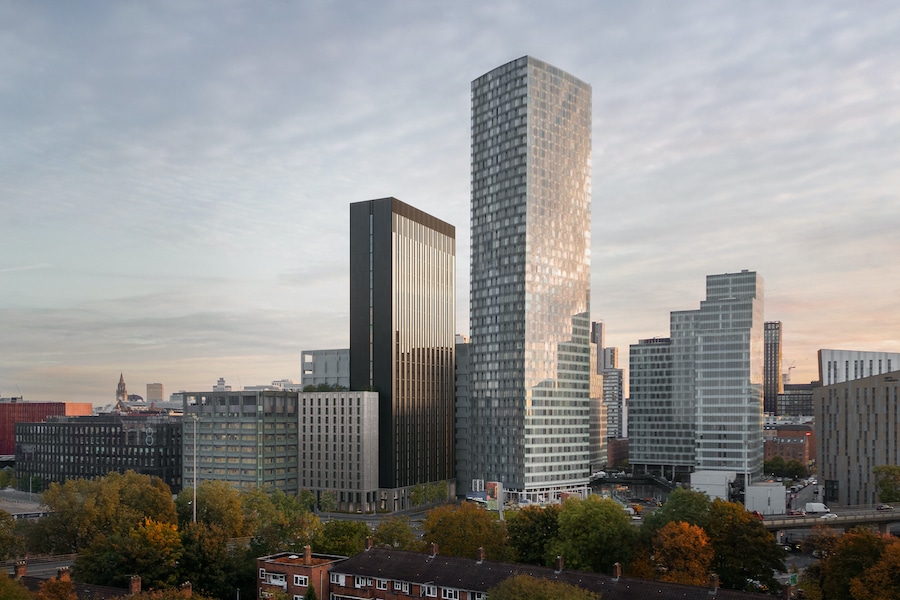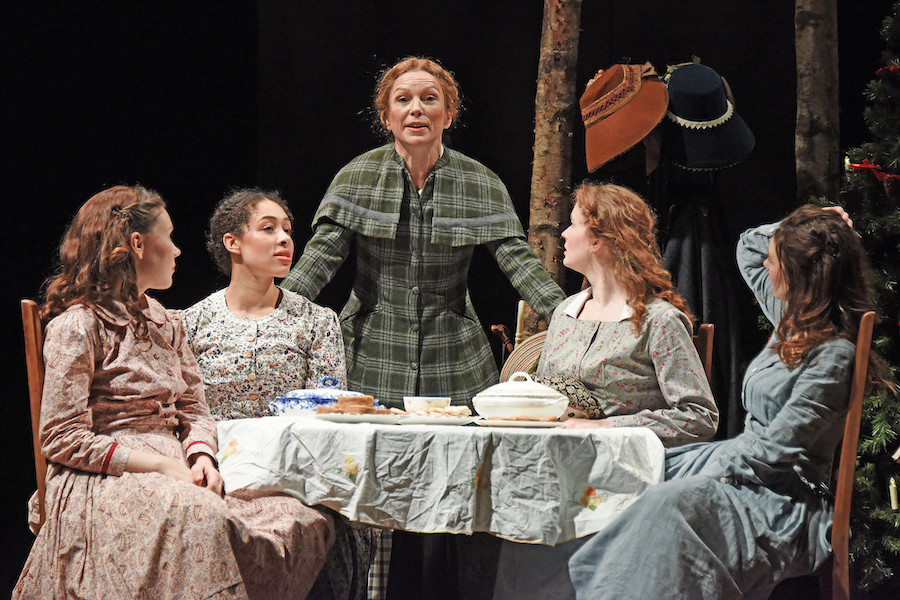The story of Ordsall: has the MediaCityUK boom improved life for Salfordians?
- Written by Louise Rhind-Tutt
- Last updated 3 years ago
- City of Salford, Community, Property & Planning, TV & Radio
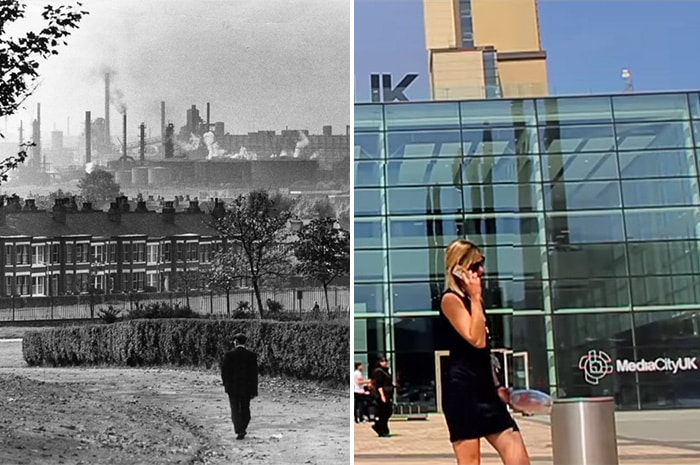
In 2011, the BBC’s MediaCityUK development in Salford became its new home in the North of England.
The 200-acre mixed-use property development on the banks of the Manchester Ship Canal is now home to over 250 businesses, as well as residential, retail and leisure developments.
The area may have swapped dock workers for technology innovators, and shipped goods for streamed content – but what has it meant for locals?
Has it improved their prospects, or created a divide?
A new BBC Radio 4 You and Yours programme, broadcast from the More4Less Food Club at St Clements Church on the Ordsall estate in Salford, has spoken to people who live there and the people who run Salford and own the new developments to discuss the cost of living, housing and jobs.
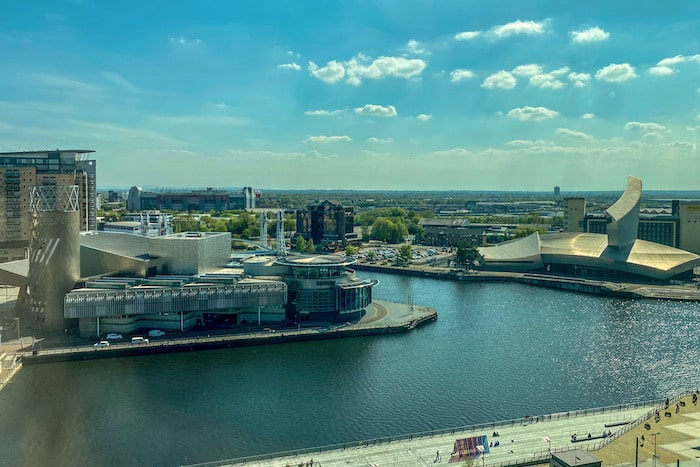
Salford is the 18th most deprived ward in England, and has recently been awarded £13.17m from the government’s Levelling-Up Fund.
More than 20,000 people live on the Ordsall estate, which is cut off from Salford Quays area and the glass towers of MediaCityUK by a busy dual carriageway.
Cheryl, one of the volunteers at theMore4Less Food Club, tells the programme she sees a range of different people – “young people, young couples, older people, people that are on the breadline, who just can’t afford food, really” – come to them for assistance.
“It’s a food club, not a food bank,” she explains.
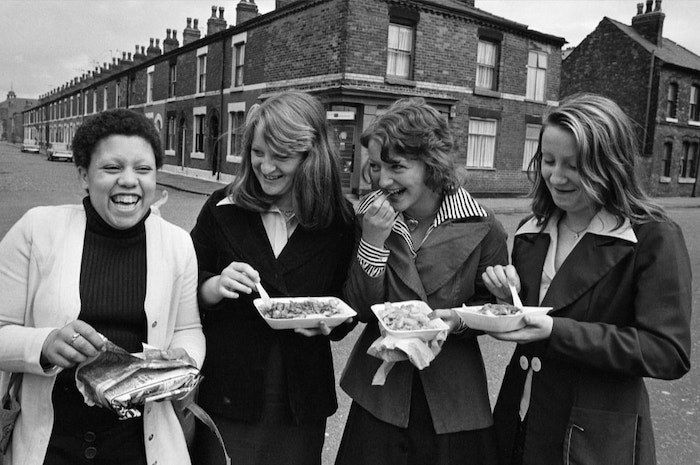
“We have members who pay £2.50, they come in and have any three of their own choice from the freezers, they come and take seven items from the cupboards; everything’s in date, it’s like a mini supermarket, really.”
One local who uses the service, Tom, says he’s “lived on Ordsall for 40-odd years.
“But it’s changed. When I first moved here the park wasn’t fenced off, there were cars burnt out every night…
“But that’s better now. It’s better now than it’s ever been, there’s nicer people.”
A significant regeneration project
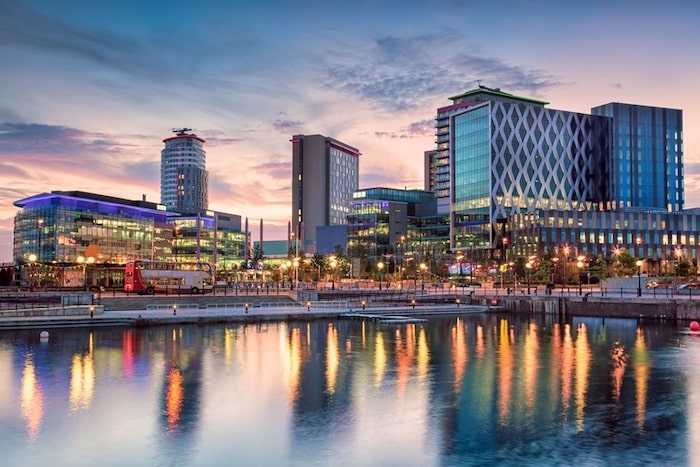
Stephen Wild of Peel Holdings, the company that built and part owns Salford Quays and MediaCityUK, says in addition to the new businesses at MediaCityUK, there are more homes and open spaces for people and families to enjoy themselves.
“But look wider and we see a significant regeneration project. There’s a lot to come,” he admits.
“This used to be the site of Manchester docks,” says Paul Dennett, Mayor of Salford.
“The docks closed in 1982 and it was a derelict wasteland for many years. The council purchased the site in 1984 and a year later we came up with a development plan working with Peel Holdings to realise what we’ve delivered to date.
“This is still very much in the making.”
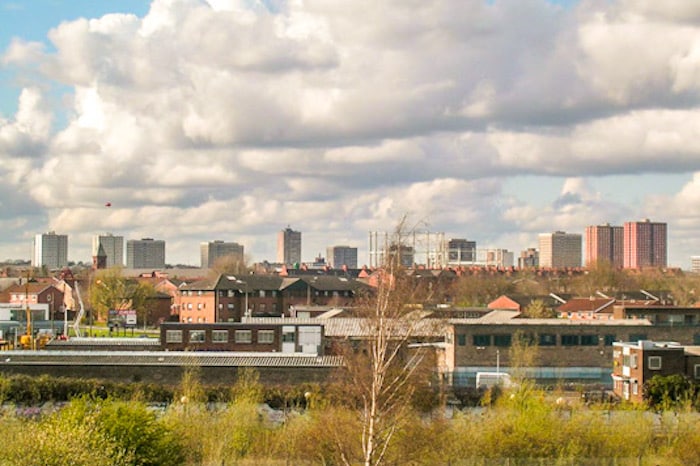
Sarah Whitehead, who runs the non-profit Salford Community Pride CIC and is the lead facilitator for the Salford Poverty Truth Commission, works with local people to help address the issue that they face and with leaders to create meaningful change.
How is this new development seen from people in Ordsall?
“It’s seen as a space that’s not for us,” says Sarah.
“It’s a space where people don’t feel welcome, and the dual carriageway is often seen as a barrier between the two communities.”
It was all about young professionals, and not what it could do for the longstanding community, she believes.
But it’s about what we do next, believes the Mayor – not about keeping people out, but how we invite them in – with things like the free We Invented the Weekend festival to encourage people to come in and use those spaces.
“Democratising the public realm is one of my priorities as Mayor,” he says.
Salford housing: more flats or affordable family homes?
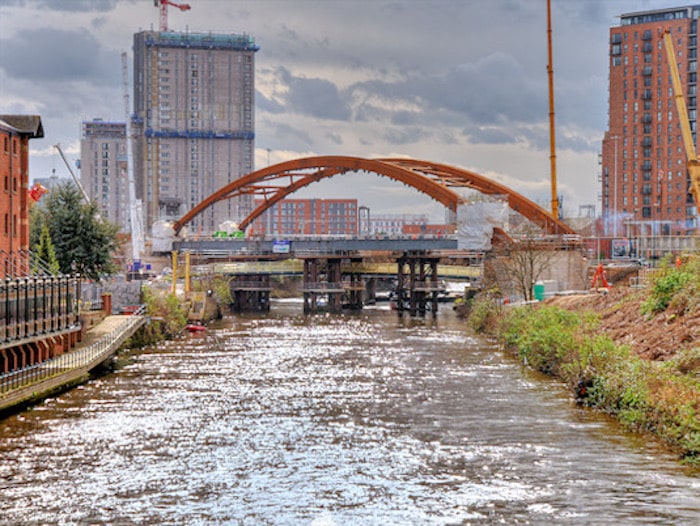
In Ordsall, the council says it has suitable land to build 365 new houses – but more than 4000 new flats.
Marie has lived on the Ordsall estate for over 30 years, and believes we need more affordable houses for families.
“We just feel like we’ve been barricaded in because there’s apartments going up everywhere round the estate,” she says.
“When it was first talked about, it was like them and us. And it still feels like we’re on one side of Trafford Road, with MediaCity on the other side.
“Because you’ve got ITV, the BBC and so on, it just feels like it’s more catered for people who have money.
“It feels like you’ve got them sort of people laughing at us working class people. You’ll always have that sort of split.”
Pat, a church warden at St Clements, says “Ordsall is in my blood, and this is where I’ll always be.”
But are locals being priced out as the area undergoes regeneration?
‘Communication is everything’
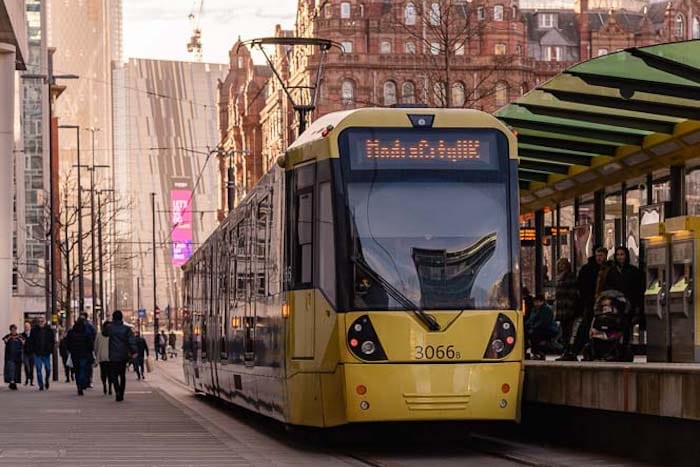
Brother and businessmen Fred and Peter Done, who co-founded Betfred, remember the Ordsall estate demolition project in the late 1960s.
Peter, who runs HR and legal firm Peninsula, employs 200 people – from an office that overlooks his old estate.
“We were born and bred in Salford. We owe Salford,” he says.
“It’s so important that the housebuilders speak to the people who are going to live there.
“Communication is everything.
“When I see it today, I’m just so proud that that has happened in Salford.”
But how much social and affordable housing has actually been provided?
“Nowhere near enough,” says Mayor Dennett.
“We’ve got to ask ourselves why. We are trying to tackle it.”
Paul Swinney, from the Centre for Cities, says there’s been a lot of change in recent years – and change should be embraced.
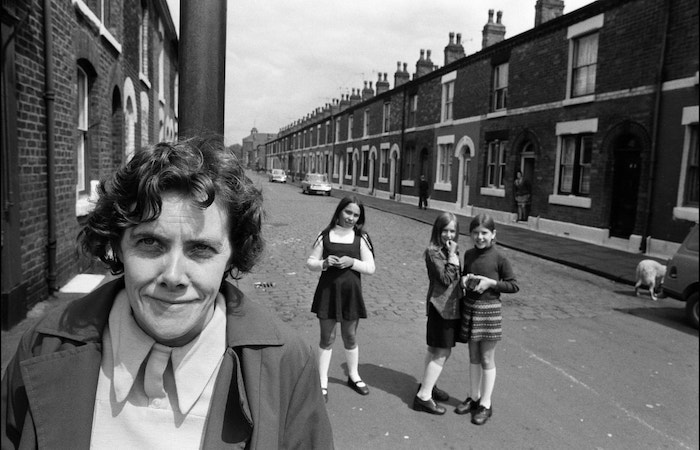
“Change is inevitable and is essentially a good thing,” he says.
“This area is better now than it was in the past.
“But clearly that’s not better for everybody, and we need to make sure we’re bringing people along with us.”
Sarah Whitehead agrees.
“We do recognise that Salford as a city needs that economic boost and we see the potential that it has for the city,” she says.
“But we need to think about growing community wealth of the communities that have been here generationally that have helped build up this area – they don’t want to leave this area but feel like they’re constantly being pushed out and marginalised.”
Has MediaCityUK meant more jobs for Salfordians?
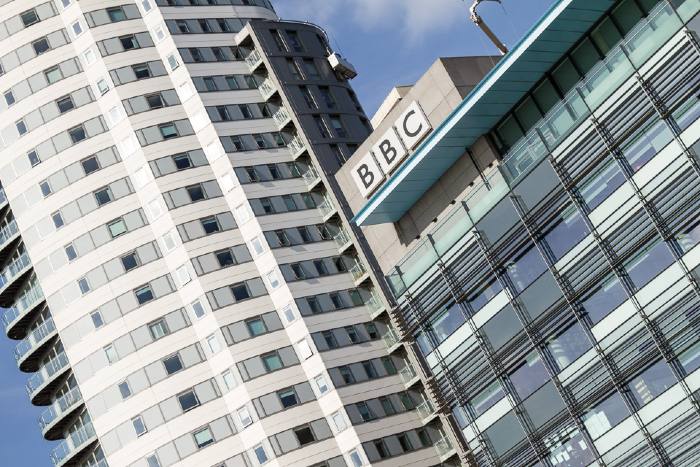
How has MediaCityUK changed the landscape of work for people who live in this city? Does it feel like somewhere where normal Salfordians can get a job?
Nicola Stead, a single mum who works at CBeebies, was one of just 24 Salfordians who was employed when the BBC moved up.
“I’m from Swinton,” she says.
“I always wanted to be a photographer, but there was nothing like ‘media’ as an option back then.
“There was nothing here when I was growing up. I remember The Lowry being built when I was at school, and I’ve even got a time capsule beneath it.
“But now with all the shops and everything here there’s so much opportunity, for jobs but also for local people to just come and look round.”
Carol, 53, who works in the canteen at the BBC, agrees that MediaCityUK has brought some opportunities to people of Ordsall.
And Salford Council set up HOST – the Home of Skills and Technology – to help get local people into digital jobs.
The future of MediaCityUK
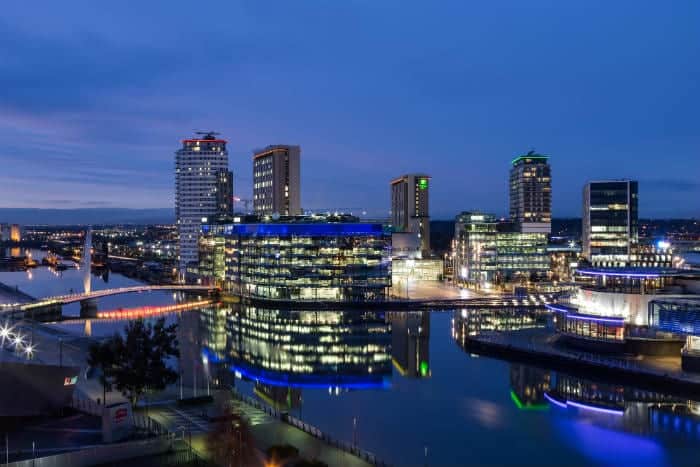
According to the Centre for Cities think tank, the creation of MediaCityUK led to 4,600 jobs between 2011 and 2016 – but its report stated the impact on the wider region was “negligible”.
But if you look at the entirety of MediaCityUK and not just the BBC, and today rather than five years ago, says Peel’s Stephen Wild, those figures are more like 10,000 or 11,000.
“And in terms of people from Salford, our latest research is indicating that around 30% of those jobs are for people in Salford.
“They’re jobs that wouldn’t be there without the growth of MediaCityUK.”
MediaCityUK is “really important,” agrees Mayor Dennett.
“It’s about thinking of those jobs of the future and trying to connect them with local people.
“When we look at our economic projections for the next 10 years, we think MediaCityUK will double in size.
“It’s about how we work together to shape that.”
- This article was last updated 3 years ago.
- It was first published on 15 June 2022 and is subject to be updated from time to time. Please refresh or return to see the latest version.
Did we miss something? Let us know: press@ilovemanchester.com
Want to be the first to receive all the latest news stories, what’s on and events from the heart of Manchester? Sign up here.
Manchester is a successful city, but many people suffer. I Love Manchester helps raise awareness and funds to help improve the lives and prospects of people across Greater Manchester – and we can’t do it without your help. So please support us with what you can so we can continue to spread the love. Thank you in advance!
An email you’ll love. Subscribe to our newsletter to get the latest news stories delivered direct to your inbox.
Got a story worth sharing?
What’s the story? We are all ears when it comes to positive news and inspiring stories. You can send story ideas to press@ilovemanchester.com
While we can’t guarantee to publish everything, we will always consider any enquiry or idea that promotes:
- Independent new openings
- Human interest
- Not-for-profit organisations
- Community Interest Companies (CiCs) and projects
- Charities and charitable initiatives
- Affordability and offers saving people over 20%
For anything else, don’t hesitate to get in touch with us about advertorials (from £350+VAT) and advertising opportunities: advertise@ilovemanchester.com
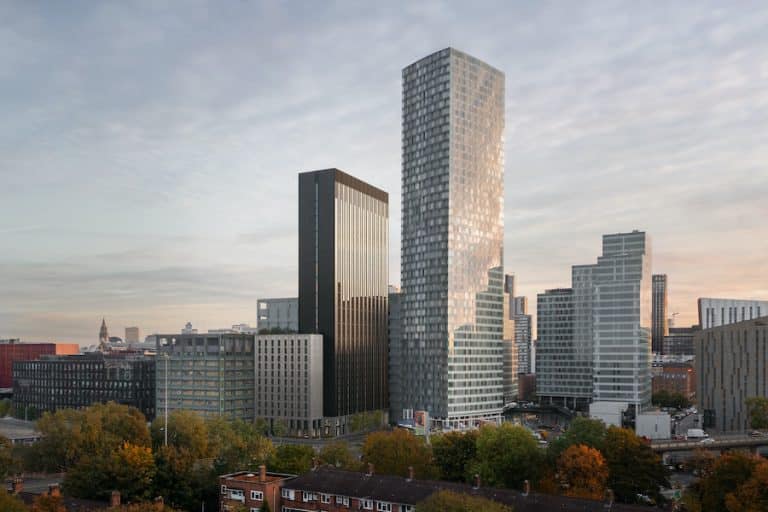
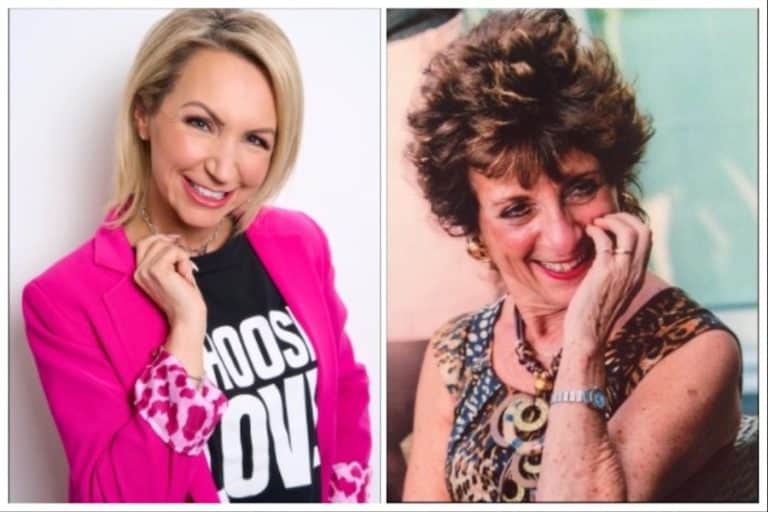
The Manc aerobics queen who trained the Corrie cast is helping raise charity cash
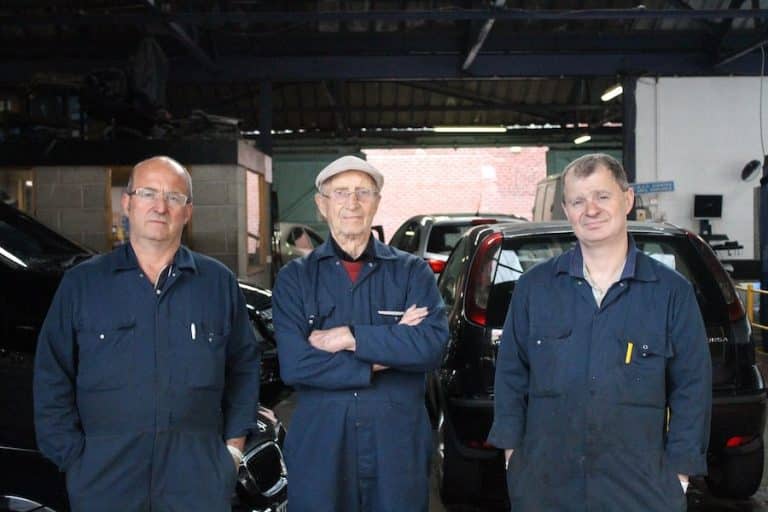
Ancoats to get even cooler as independent market set for MOT garage site
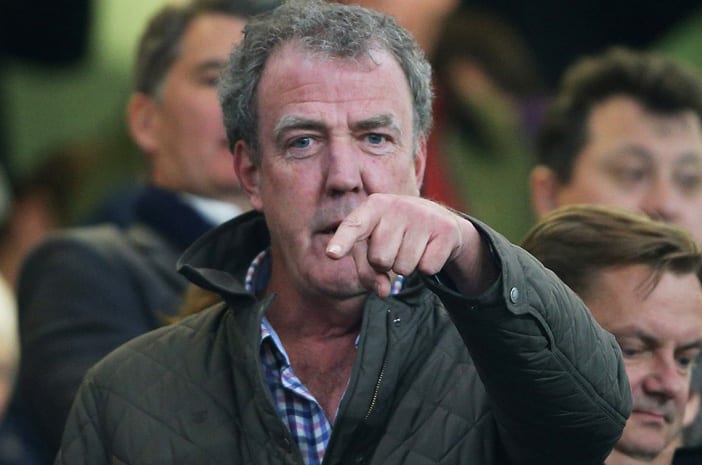
“Manchester is not Britain’s second city, it’s the first” – Jeremy Clarkson
